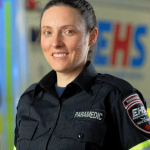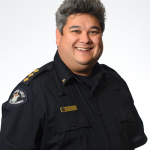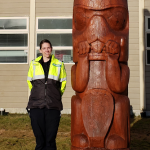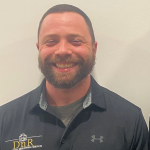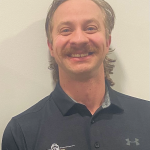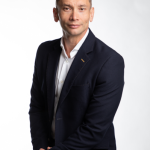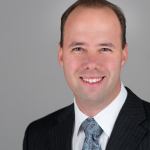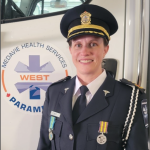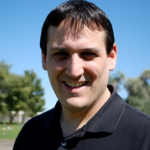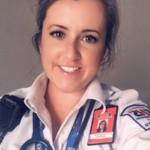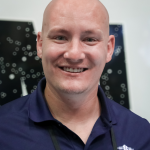Kindermedic (2-day)
KinderMedic is a two day program designed to address the gaps in paramedic pediatric education. It provides 16
hours of instruction, comprised mainly of small group skill sessions followed by a number of high fidelity
simulations to allow learning to be applied and reinforced.
OPENING CEREMONIES
NUTRITION BREAK
Responding without a clue: Paramedics and the needs of sexual assault survivors
Many sexual assault survivors experience continued powerlessness, shame and guilt while accessing healthcare services due to insensitive treatment by health service workers, pre-hospital care and paramedics inclusive. However, when treated with care, compassion, clear explanations and choice, survivors experienced positive associations with health care and can feel “humanized”. These positive interactions may be viewed as positive social support, which has been proven to diminish psychological impact of stressful life events. Unfortunately, many paramedic services across Canada and the United States do not have clinical practice guidelines to support paramedics in responding to calls for sexual assault; paramedics, in general, are not trained to address the complex trauma and identities of the people who have been sexually assaulted (for example: Indigenous women, transgender folks, historical sexual assaults, or men).
Session Objectives:
1. Discuss the importance and application of trauma informed, culturally safe practice for survivors of sexual assault
2. Analyze current training and clinical practice guidelines for sexual assault response
3. Outline best practice for sexual assault calls, with key considerations for specific populations
4. Identify strategies to support agencies in developing sexual assault-specific practice guidelines
The art of running high fidelity simulation for Paramedics: planning, execution, feedback and safe debriefs
This presentation aims to underscore the critical role of high-fidelity simulation in the field of prehospital medicine, with a specific focus on standardization, fostering a "CUS" culture, and delivering effective and safe feedback. The objective of this session is to inspire dialogue and collaboration among healthcare professionals, educators, and leaders, with the shared goal of advancing ongoing simulation practices to ensure the well-being of patients and the future of medical care.
Debriefing and simulation should be consistently conducted in a manner that encourages individuals to be receptive to feedback, rather than viewing it as punitive.
Outline:
1. Introduction
-Definition and significance of high-fidelity simulation
-Overview of relevant literature and research findings
2. Impact of high-fidelity simulation on patient-centered healthcare metrics
-Examination of the benefits and potential drawbacks of simulation
-Case studies highlighting the integration of simulation in high-performing agencies
3. Establishing an effective simulation program in conjunction with QA/QI
-Customizing simulation to address departmental needs and objectives
-Incorporating policy, protocol, medication, or equipment changes into simulations
-Addressing high-risk, low-volume procedures
-Exploring innovative and cost-effective approaches to simulation delivery
4. Challenges in implementing and sustaining simulation programs
-Discussion of cultural and organizational factors influencing simulation adoption
-Overcoming resistance and fostering a culture of ongoing simulation
-Elevating the professional status of simulation and strategies for achieving stakeholder buy-in
5. Creating a safe and supportive simulation environment
-Ensuring clearly defined roles, opportunities, and adherence to basic assumptions
-Validating concerns and incorporating realistic elements into scenarios
6. Effective debriefing techniques
-Exploring different approaches to providing constructive feedback
-Cultivating a "CUS" culture in both simulation and real-world patient encounters
7. Standardization of simulation templates
-Discussion of a comprehensive template that includes clear instructions and relevant content
8. Conclusion
-Encouraging participants to apply simulation principles within their respective teams
-Key takeaways emphasizing the importance of standardization, effective debriefing, and ongoing simulation practice
Supporting the mental health of paramedics and their families: CIPSRT
The Canadian Institute for Public Safety Research and Treatment (CIPSRT) was founded in 2017 as an open space where Canadian Public Safety Personnel (PSP) from “coast-to-coast-to-coast” could access the most up-to-date information on mental health and wellbeing. Under the scientific direction of a team of multi-disciplinary researchers, CIPSRT serves as a knowledge exchange hub for knowledge synthesis, translation and exchange for the CIHR-CIPSRT National Research Consortium for Post-Traumatic Stress Injuries among Public Safety Personnel. Through its national network of academics, researchers, clinicians, and PSP leadership, CIPSRT is a multi-million dollar funded, not-for-profit institute that engages existing academic research resources and facilitates the development of new research, research capacity, and effective knowledge translation by responding to the identified needs of PSP. Through research and development of evidence informed resources, CIPSRT supports high quality and easily accessible mental health care for all PSP, their leadership and their families.
PRESENTATION GOALS:
This session will:
• explain the origin and development of CIPSRT;
• explain role of key stakeholders and contributors including the Public Safety Steering Committee, the Academic / Research / Clinician Advisory Committee, and the Academic / Research / Clinician Network;
• describe the research findings with respect to the mental health and wellbeing of PSP in Canada; and,
• demonstrate the array of resources and tools that are freely available to PSP through the CIPSRT website.
LEARNING OBJECTIVES:
Upon completion of the session, attendees will be able to:
1. Explain the origin and development of CIPSRT.
2. Explain role of key stakeholders and contributors including the Public Safety Steering Committee, the Academic / Research / Clinician Advisory Committee, and the Academic / Research / Clinician Network.
3. Describe highlights of the research findings with respect to the mental health and wellbeing of PSP in Canada.
4. Access and utilize the resources and tools that are freely available to PSP and their families through the CIPSRT website.
LUNCH BREAK
A tale of two wheezers: pediatric respiratory distress
Objectives:
Discuss treatment recommendations in paediatric respiratory distress
Review pharmacology related to management of respiratory distress
Discuss differentitating asthma and bronchiolitis
Description:
Respiratory season is approaching and the smaller the kid is, the scarier it can be! Can you tell the difference between bronchiolitis and asthma? Does it matter? Join me for a blend of practical experience and modern evidence that will discuss the assessment, differential diagnosis and treatment options for the wheezy child!
If you’re not sitting at the table, you’re probably on the menu: how EMS data can influence policy, access funding, & improve your performance
With the introduction of electronic patient care reports over a decade ago, paramedic services are sitting on a goldmine of data, but how well do we really use it? Over the course of the presentation, I will go through how to go beyond traditional Key Performance Indicators typically used by paramedic services and talk about how this data can be used to inform public policy beyond EMS.
Paramedic data can support public health efforts through syndromic surveillance of respiratory illnesses, or heatmapping calls disproportionately impacting vulnerable populations (overdoses, mental health crises, environmental emergencies, etc.). Paramedic services can also provide data on high-risk intersections to help prioritize investments for upgrading public infrastructure, or demonstrate trends with environmental emergencies such as heat and cold injuries, for example.
But we also need to recognize the limitations of our data. What are the data elements in which we can have confidence, and what data elements should we be skeptical about? What’s the difference between using data for operational decision-making versus using our data for clinical research?
The presentation will explore how to collect, interpret and present data to capture attention, improve operations and influence policy.
This session will provide opportunity for participation and discussion to highlight and share how participants are using their data to drive change.
Talk it up! Unleashing tools for effective communication, feedback and mentoring
This interactive session is tailored for individuals aspiring to become effective at giving feedback, whether to colleagues or students. Participants will gain valuable insights and practical strategies into providing constructive feedback, handling difficult conversations, and fostering a supportive environment for growth. With the goal of positively impacting the growth and development of their peers or students while navigating the complexities of providing feedback in diverse and challenging situations.
In this session, participants will:
1) Learn the art of providing feedback that is constructive, specific, and actionable.
2) Identify challenges in providing feedback to difficult individuals.
3) Explore techniques for initiating and managing challenging conversations with professionalism and empathy.
4) Understand the importance of creating a supportive and inclusive environment for growth.
5) Discuss ways to build trust and rapport with those being coached or mentored.
Paramedic evidence-based practice
Our session will focus on one of the ten guiding principles “Evidence Informed Practice and Systems”, as defined by Tavares (2022), supported by the enabling factor of “Promoting a Shared Understanding of Paramedicine”. The Paramedic Evidence Based Practice Program (PEP) (https://emspep.cdha.nshealth.ca/Default.aspx) will be introduced and demonstrated. This program is a freely available repository of appraised paramedic services evidence. It is made by paramedics and EMS clinicians for paramedics and is essential to evidence informed care in paramedicine. A live tutorial of the program will be presented.
Passionate speakers and paramedic researchers, Dr. Judah Goldstein and Jennifer Greene, partner to share an interactive and engaging look into the world of knowledge translation and Paramedic Evidence Based Practice and its role in moving our profession forward. Judah and Jennifer have shared this important and empowering message locally at such venues as the Nova Scotia Oak Island Paramedic Symposium and the Paramedic Association of PEI Symposium. This content has been enthusiastically received and they hope to have the opportunity to share this call to action on a national platform.
Objectives:
• Discuss the definition and principles of paramedicine, and the role of evidence-based practice in its current and future state.
• Introduce the Prehospital Evidence-Based Practice Program (PEP) and how to use this tool to enhance your practice.
• Define knowledge translation and paramedic evidence based practice.
• Describe how these processes are critical to the evolution of paramedicine.
• Share some inspiring examples of practice changing paramedic research.
• Highlight career opportunities in non-clinical roles, such as research.
• Share methods and opportunities to ensure evidence based decision making is part of your practice.
This will be an engaging and interactive session with opportunities to discuss and pose questions in real-time.
NUTRITION BREAK
Updates, controversies & pearls in advanced airway management in the prehospital setting
Evolving leadership culture in EMS
Session Description:
From a first-person perspective of experiencing change in clinical leadership over time, this session describes the evolution of clinical leadership within Emergency Medical Services from a militant approach to the modern style of developing a participative leadership culture amongst frontline staff that has been leveraged from the Paramedic Chiefs of Canada: Paramedic Leadership Competency Framework.
Historical clinical leadership in the speaker’s organization had been militant with limited opportunities for engaging with management to create change within the service model. This session will explore the impact that having people in clinical leadership that are encouraged to engage, inspire and develop others has had on the frontline staff, the organization, and patient care. The session will also discuss how frontline staff have benefited the organization over time by providing insight and feedback to direct changes. As participative leadership is the focus, the session will describe this leadership philosophy by delving into the empowerment of the team that is cultivated by utilizing the most skilled and knowledgeable staff members for the right projects.
Feedback received from frontline staff on their experience with the evolution of clinical leadership over the last 5 years is the basis for why we continue to lead this way and why we want to inspire others to do the same. During this session the feedback will be shared, and these thoughts will be supported through lived experience of current leaders from Shared Health ERS- EMS West Zone in Manitoba. These leaders entered EMS during a time when we leaders were feared, and developed themselves into the leaders that are described by the Paramedic Chiefs of Canada Framework.
Session Objectives:
By the end of this session participants will be able to Illustrate negative impacts of militant leadership approaches and if they can recognize these traits within their own organization. The participants will be able to identify positive impacts of leading others as described by the Paramedic Chiefs of Canada: Paramedic Leadership Competency Framework and leave the session with the ability to discuss how leaders can develop this style of leadership within their organization.
A unique approach to continuing education
Description: Paramedic continuing education differs across the country, and even within provinces and territories. This interactive session will describe the unique provincial approach to both prescribed and elective continuing education used by Emergency Health Services (EHS) Nova Scotia and relate the challenges and successes with the current continuing education program. The session will also provide an opportunity for attendees to share information regarding the continuing education programs within their systems, including a discussion on challenges, benefits and outcomes.
Learning Objectives: At the end of this in-person session, participants will be able to:
1. Describe a multi-modal approach to education within one Canadian EMS system.
2. Identify a variety of approaches to continuing education from across Canada.
3. Support networking and collaboration with fellow EMS learners and educators on continuing education practices
Navigating the challenges of multitasking in Paramedicine: balancing high tactile tasks with effective treatment management
Introduction:
● Background Context: Brief overview of the demanding environment paramedics work in,
emphasizing the need for multitasking and awareness of the risk of making mistakes.
● Personal Introduction: Share your experience and expertise in the field of paramedicine.
Presentation Objectives:
Understanding Multitasking in Paramedicine:
● Define multitasking in the context of paramedicine.
● Discuss the importance of multitasking in emergency medical situations.
Identifying High Tactile Tasks:
● Detail what constitutes high tactile tasks in paramedic scenarios.
● Explore examples of such tasks and their critical nature.
Risks of Multitasking:
● Examine the potential risks and challenges associated with multitasking in high-stress
environments.
● Present research or case studies highlighting these risks.
Effective Treatment Management:
● Discuss strategies for balancing hands-on tasks with the delegation of treatment.
● Introduce best practices for maintaining patient care quality while multitasking.
Mitigating Risks:
● Offer practical tips and techniques to minimize risks.
● Highlight training or tools that can aid in managing multitasking more effectively.
12 Lead Interpretation
Prepare to embark on an epic journey through the galaxy of ECG interpretation with the guidance of the Jedi Master, Dave Klein. In this thrilling 2-hour course, you'll delve deep into the mystical realm of the heart's electrical forces, learning to decipher its cryptic messages with the skill of a Jedi Knight.
Kindermedic (2-day)
KinderMedic is a two day program designed to address the gaps in paramedic pediatric education. It provides 16
hours of instruction, comprised mainly of small group skill sessions followed by a number of high fidelity
simulations to allow learning to be applied and reinforced.


